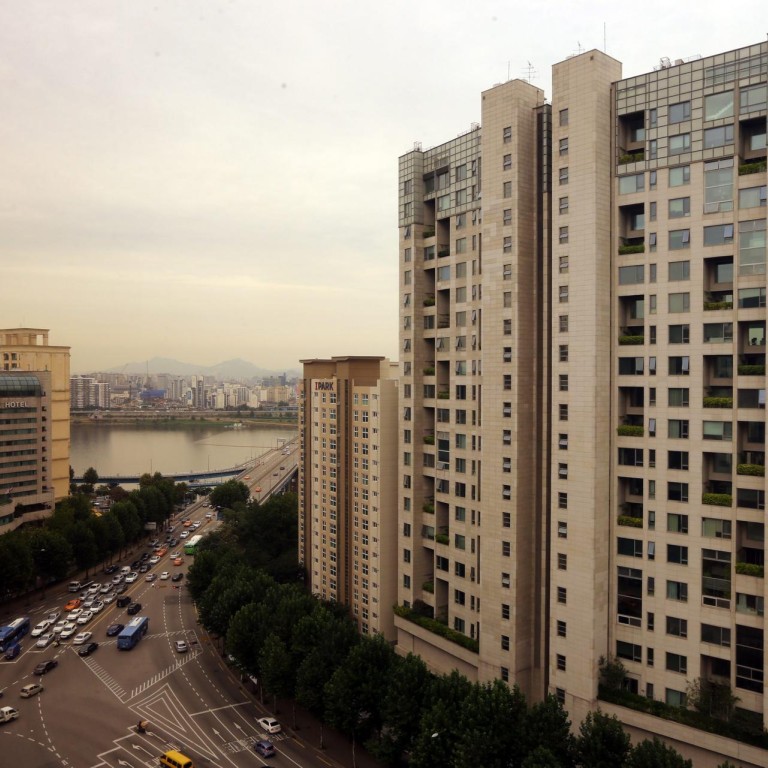
Asian property deal boom to see more mall purchases
Transaction value this year hits US$82 billion, with Beijing, Tokyo and Shanghai the top destinations for commercial property investors
In Asia's real estate market, deal making just hit a record. More is coming.
Property deals in Asia reached a record US$34 billion last quarter, a turnaround from the global financial crisis.

Standard Chartered said CapitaRetail China Trust, a Singapore-listed company with 10 malls in eastern China, was among the next possible targets as it trades below the US$1.7 billion estimated value of its assets.
Saizen Reit, another Singapore-listed trust that owns about 5,500 apartments in Japan, is similarly undervalued. CBRE said buying a mainland mall would be a way for a global buyout firm or Hong Kong developer to profit as the world's second-biggest economy became more consumer-centric.
"Being in retail is a natural way to front-run that trend," Marc Giuffrida, CBRE's executive director for global capital markets in Asia, said. "We see very strong demand in all the key gateway markets for good-quality real estate."
Last quarter's record announced deals for real-estate companies and investment trusts in Asia pushed this year's total to US$82 billion. Beijing, Tokyo and Shanghai were the top destinations for commercial property investments in Asia in the first half this year, property services firm Cushman & Wakefield said last month, with the mainland attracting 73 per cent of the total.
"Asian consumers have continued to expand spending, creating vast incentives for continued investments," Priyaranjan Kumar, Singapore-based regional director of capital markets at Cushman & Wakefield, said.
Cities across Greater China were the most attractive Asia-Pacific locations for international retailers, JLL said in a June report. Economists estimate retail sales will rise at least 12 per cent in each of the next three years.
CapitaRetail's earnings before interest, taxes, depreciation and amortisation will jump 52 per cent to about S$147 million (HK$898.5 million) in 2016 from last year, according to analysts' estimates. Rental revenue at CapitaMall Grand Canyon in Beijing, the company's biggest shopping centre, might jump 26 per cent by 2016 as tenants signed up for more expensive leases, Standard Chartered said.
Shares in CapitaRetail have climbed 16 per cent this year and traded at S$1.55 on Wednesday, giving the company a stock market value of S$1.3 billion. That compares with Standard Chartered's estimate of S$2.13 billion, or S$2.58 a share, for CapitaRetail's revalued net asset value.
Potential acquirers included private equity firms and real estate developers, CBRE said. CapitaLand, CapitaRetail's largest shareholder with a 19 per cent stake, was also a possible buyer, Standard Chartered said.
Saizen Reit, which owns apartments in cities including Tokyo and Sapporo, might also attract suitors because it was undervalued, said Regina Lim, an analyst at Standard Chartered in Singapore. About 91 per cent of Saizen's units are occupied, according to its website.
Saizen shares have fallen 3.2 per cent this year and traded at 89.5 Singapore cents on Wednesday, compared with its net asset value of S$1.22 a share at the end of June.
Real estate prices across Japan have risen about 20 per cent since Japanese Prime Minister Shinzo Abe took office about two years ago, according to an estimate by Deutsche Asset & Wealth Management. It said property investment in Japan rose 70 per cent to 4.6 trillion yen (HK$330.5 billion), the highest level since March 2008, in the 12 months to the end of March.
Residential prices in Japan's three largest metropolitan areas increased for the first time in six years, the government said in a report last month.
Still, property owners and developers in Japan face the prospect of waning demand from a population that has shrunk every year since 2008, according to data from the International Monetary Fund. More than one in four people in Japan are older than 65, the highest proportion in the world.
Meanwhile, some investors are concerned economic expansion will slow on the mainland. Growth will probably be 7.3 per cent this year, according to a survey of economists last month - the slowest pace since 1990.
However, that might not prevent bids for undervalued property companies such as CapitaRetail and Saizen.

